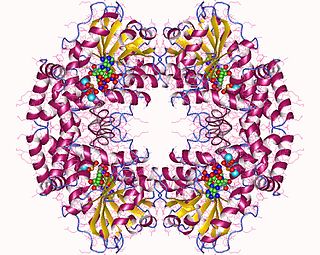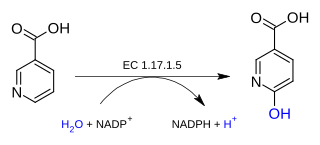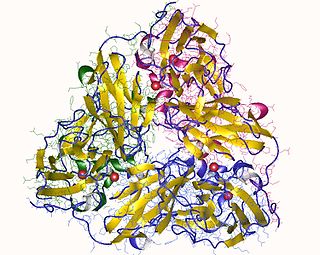| nicotine dehydrogenase | |||||||||
|---|---|---|---|---|---|---|---|---|---|
| Identifiers | |||||||||
| EC no. | 1.5.99.4 | ||||||||
| CAS no. | 37256-31-8 | ||||||||
| Databases | |||||||||
| IntEnz | IntEnz view | ||||||||
| BRENDA | BRENDA entry | ||||||||
| ExPASy | NiceZyme view | ||||||||
| KEGG | KEGG entry | ||||||||
| MetaCyc | metabolic pathway | ||||||||
| PRIAM | profile | ||||||||
| PDB structures | RCSB PDB PDBe PDBsum | ||||||||
| Gene Ontology | AmiGO / QuickGO | ||||||||
| |||||||||
In enzymology, a nicotine dehydrogenase (EC 1.5.99.4) is an enzyme that catalyzes the chemical reaction
- (S)-nicotine + acceptor + H2O (S)-6-hydroxynicotine + reduced acceptor
The 3 substrates of this enzyme are (S)-nicotine, acceptor, and H2O, whereas its two products are (S)-6-hydroxynicotine and reduced acceptor.
This enzyme belongs to the family of oxidoreductases, specifically those acting on the CH-NH group of donors with other acceptors. The systematic name of this enzyme class is nicotine:acceptor 6-oxidoreductase (hydroxylating). Other names in common use include nicotine oxidase, D-nicotine oxidase, nicotine:(acceptor) 6-oxidoreductase (hydroxylating), and L-nicotine oxidase. It has 2 cofactors: metal, and FMN.




